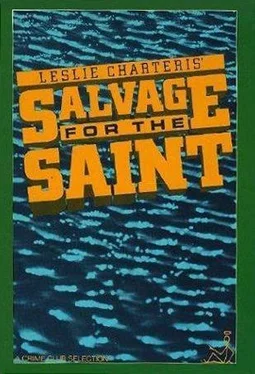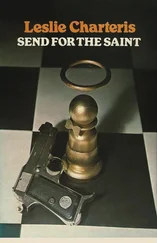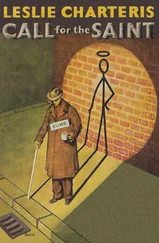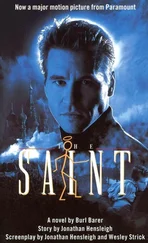Finnegan could have done it — in theory. The case against him might have been strengthened, but it remained unproved. One point in his favour, although a small point, was that the third set of scuba gear hadn’t been found on board. The Captain might yet turn out to be an innocently genuine toper.
In which case, the continuing logic told Simon, there must be someone else at large with the diving gear — perhaps lurking about underwater somewhere nearby.
Simon continued to chew it over as he completed the loading of the net. He gazed up for a moment through the deepening emerald gloom to where the pale underbellies of the two boats hung down below the surface. Nearest him, the Phoenix’s big white keel projected down perhaps ten feet, and on the far side of her the much smaller shape of the coastguard launch was tucked in close beside it like a small daughter whale sheltering in her cetacean mother’s lee. There was just one place in the immediate area of the two vessels where a diver could feasibly be hiding, or have stayed hidden for any length of time. On the far side of the launch there was a narrow wedge of water, extending a few feet down from the surface, that was invisible both from the Saint’s viewpoint on the sea bed, and also from the decks of the Phoenix; and that was where Simon intended to look before he finally surfaced.
He had already made a careful inspection all around the sunken wreck itself, with his fingers alert on the hilt of the knife tucked into his weight-belt. He had not seriously expected to find anyone lurking there, figuring that the enemy, whoever that was, would not make his move until the gold had all been loaded aboard.
Therefore the Saint had shelved the problem of the diver, and where he might be concealed, and had simply got on with doing what had to be done. The diver might have gone ashore — the nearest point of land being no more than a hundred yards off — or, as Simon had now realised, he just might be skulking on the blind side of the launch.
The Saint glanced at his air gauge again as he secured the net and tugged on the rope for the last load to be hauled up. He had five minutes left, perhaps six; and that would be enough. Enough to close the hatch, and to investigate that wedge of blind water on his way up.
It was not the first time that Simon Templar had underestimated the opposition; nor was it the first time his calculating of an opponent’s next move had been incomplete in some small but potentially disastrous particular. He had reasoned that the enemy would make his move only after the gold had been secured; but he should have realised that the enemy could make up his own mind about when enough gold for his plans had been hauled up.
Of course, when it was all over, it was absurdly obvious. But when foresight was needed, he had missed it.
He had not seen the other diver who slid silently along the sea bed from the shore a few minutes before; neither did he see that diver now, emerging from a thicket of the viridescent weed nearby to take up silent station by the sunken boat’s stern, as the Saint steadied the load from deep inside.
Simon saw the laden net clear the hatchway above him; he saw it swing to one side, as each load before it had done; he saw it begin to recede upwards, off-centre in the greenish rectangle of light framed by the hatchway. And then he saw, with a dumbstruck horror such as he had seldom known in his life before, that rectangle of light suddenly shrink and narrow to a slit, and then to nothing, as the hatch was closed on him from above.
In the Stygian blackness of his underwater dungeon, Simon Templar heard the sound that must surely seal his fate. He heard the grinding and scraping of the heavy locking mechanism as someone secured the hatch above him; and in that instant he could hardly avoid the conviction that destiny must surely have come to claim him at last.
Death had started towards him often enough before, and perhaps half a dozen times had come close enough for him to have felt that his chances of survival were worse than even. But somehow, by a happy combination of luck and resourcefulness, he had always won through, even in circumstances where his prospects looked about as good as those of a three-legged donkey in the Grand National. But never until now had he had to give himself up for dead. On those other occasions, he had always had some reserve of his own, however tenuous, which he might somehow press into service, or some human support in the background to give at least a glimmer of hope; but this time he could think of nothing that would ever get him out.
In the first few seconds, as he realised with that sickening numbness what had happened and would happen yet, he tried, with the desperate strength of three men, to force open the locked hatch. But the attempt was useless. There was nothing for him to brace himself against while he kicked at the hatch, and he could get no real power behind the effort against the resistance of the water.
Perhaps it had been written in the stars, from the very beginning, that this was where his life was to end. He had long known that he could not go on blithely cheating death for ever and a day. That was in the nature of his hazardous trade, which he had chosen freely; and if his nemesis had caught up with him at last, he had no right now to bewail his lot. He had played the game gladly, and won gladly; and now, he had lost. It was as simple as that. There at the bottom of the sea he was alone with his ultimate fate, with not the remotest prospect of the cavalry appearing over the hill at the last minute... nor of any other miracle.
In real life there were no miracles; and real life for the Saint had dwindled down into perhaps two hundred cubic feet of underwater blackness, and a couple of minutes of breathing before his air ran out. And then the cabin would become his water tomb, and he would pass out of the living legend and into the historic. And so there was nothing left but to resign himself to the inevitable.
Above the hull, the other diver had continued swiftly and decisively with the execution of his plan. Silently, he surfaced in the blind water on the far side of the launch. He climbed aboard and released an extra length of the boat’s anchor rope. He dived again, following the rope to the anchor itself. He dragged it along the sea bed, passed the rope twice around the rail of the sunken cruiser, and then silently swam back to surface again beside the launch. Lebec, Arabella, and the crewmen were busy unloading the gold on to the Phoenix’s deck; there was no reason for them to turn to the launch, and they did not see the diver stealthily setting fire to the cushions in its cabin, before he silently slipped back into and under the water.
A minute or so later Lebec suddenly stood still and sniffed the air like a pointer dog. He turned towards the source of the acrid smoke.
“My ship! Vile!” he bellowed.
He grabbed a bucket and leapt across to the launch. The crewman followed with a second bucket, and after a momentary hesitation Arabella joined them.
While they were preoccupied with trying to douse the flames, the diver resurfaced between the two boats to proceed to the next stage of his plan. He cut the rope with which Lebec had tied the launch close up to the Phoenix. Then he braced himself against the bigger boat, and with his feet he pushed the launch well clear. He boarded the Phoenix, and made for the wheelhouse.
Lebec felt the movement of the launch, shouted, then turned in rage and astonishment as the Phoenix’s engines came to throbbing life. And the Phoenix began to pull away, with someone visible at the wheel who, from that distance, could be recognisable only as a man wearing a diver’s wet-suit and mask.
Читать дальше












